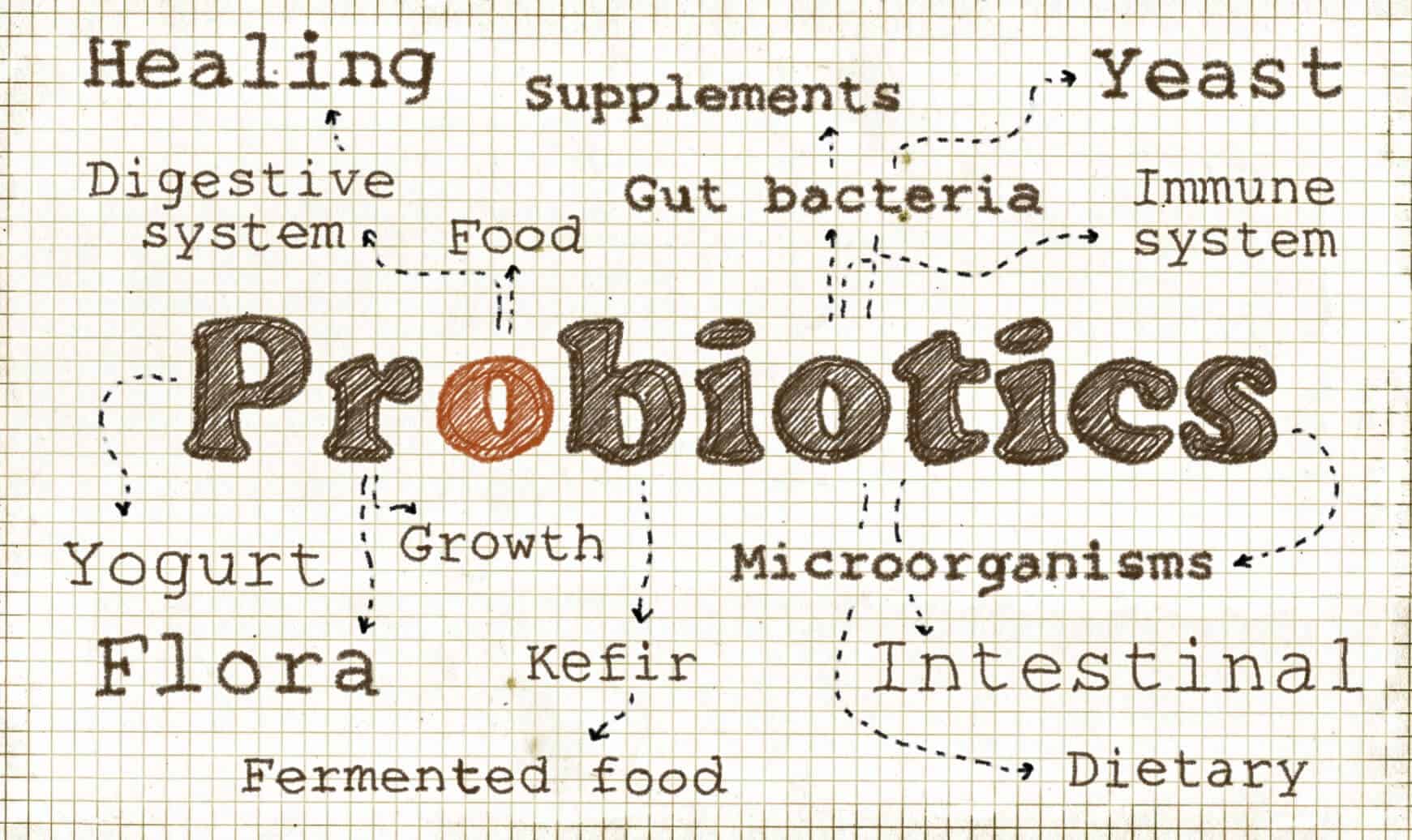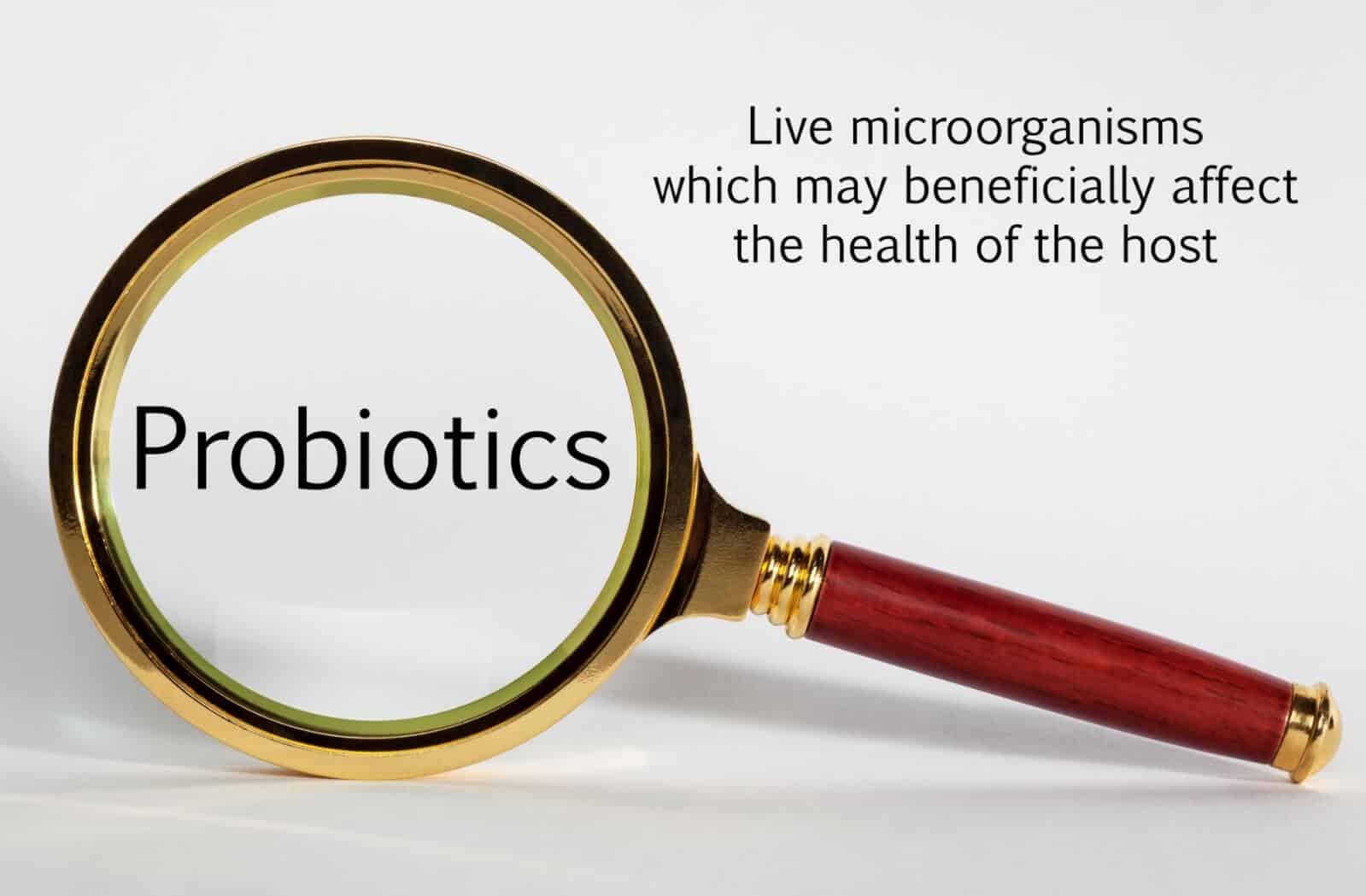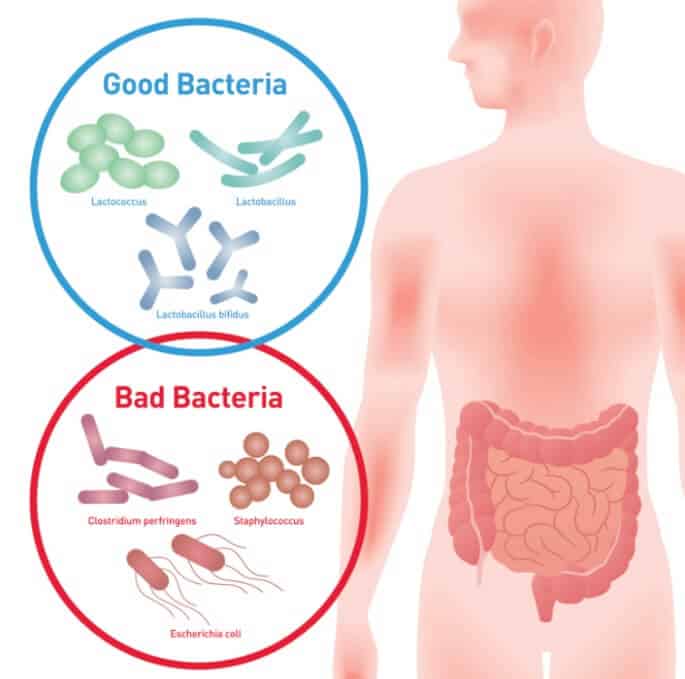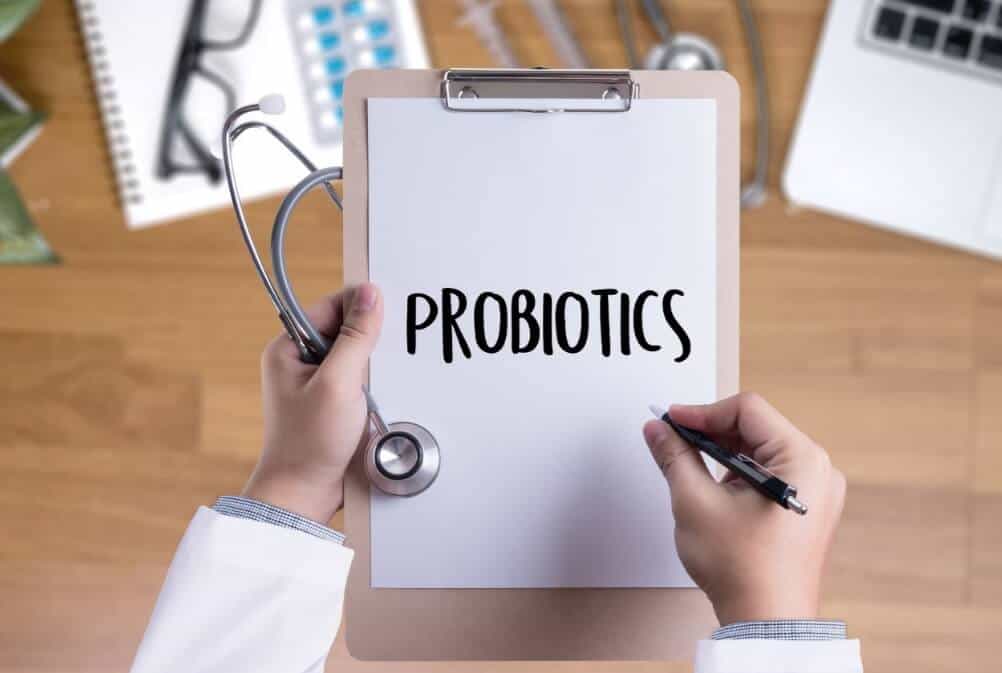Probiotics appear on store shelves everywhere you go. Many claim to boost immunity, energy levels and even help with weight loss.
Not everyone benefits from probiotics – at least, as far as we can tell right now. Your need for natural probiotics supplements depends on your health – despite what supplement manufacturers might tell you.
Probiotics are great if your digestive system is all out of whack. But, otherwise, we’re not quite sure how they help us…yet.
Do you need to take probiotics to stay healthy? Are there any health benefits of probiotics – and are there risks to taking probiotics? Here is everything you NEED to know about probiotics and your health.
History of Probiotics
According to Beneficial Microbes, it’s possible that probiotics have been around for 10,000 years. Fermented foods often contain probiotics. The more popular foods include:
- Beer
- Cheese
- Yogurt
These probiotics foods are nothing new, though they were probably, like many other scientific revelations, discovered accidentally.
Probiotics have been present in specific types of food for centuries. Science hasn’t always called them by their name – or used them the way we do now.
According to the National Center for Complementary and Integrative Health, in the early 20th century, Elie Metchnikoff proposed that certain bacteria found in yogurt could improve our health if consumed.
It wasn’t until the mid-1990s that the medical community started taking this concept seriously. Since then, researchers have sought to uncover the potential health benefits of probiotics (see research in Frontiers in Public Health).
Supplement manufacturers have since taken advantage of the opportunity to encourage consumers to introduce “good” bacteria into their digestive tracts, whether they needed the probiotics supplements or not.
What types of probiotic foods best fit into a healthy, nutritious diet? Tracking your food intake with an app like Noom allows you to choose the best probiotic foods for the new you.
What are Probiotics?
As per the National Center for Complementary and Integrative Health, probiotics are live cultures of bacteria that are supposed to diminish the possible negative effects of harmful bacteria in your digestive tract.
It’s important to maintain a healthy balance of “good” and “bad” bacteria in your gut to stay healthy. But, what happens if there’s an excessive amount of bacteria in the small intestines?
The result is the digestive condition Small Intestine Bacterial Overgrowth (SIBO).
Summary: Probiotics are live bacteria that can help balance out the micro biome in your gut. Science is still unsure of all their potential benefits, but we do know probiotics help to control growth of “bad” bacteria and improve digestion in many people.
Difference Between Probiotics and Prebiotics
Probiotics, such as Align, and prebiotics used in tandem can both benefit your digestive health.
Probiotics are the living bacteria themselves. You will often find probiotics in fermented foods like yogurt and certain soy based foods.
Prebiotics are “food” for probiotics. They help probiotics thrive in your digestive system, leading to a more controlled growth of potentially harmful bacteria. Prebiotics are non-digestible carbohydrates that can, along with probiotics, benefit your digestive system.
According to Academy of Nutrition and Dietetics’ Eat Right, you can get prebiotics by eating common foods such as bananas, garlic, asparagus, soybeans, artichokes, and whole wheat products.
Summary: Probiotics are bacteria that promote a healthy, well-balanced digestive tract. Prebiotics are the “food” that allows probiotics to thrive and keep your digestive tract healthy.
Best Time to Take Probiotics
There are two ways you can take probiotics – either through a dietary probiotic supplement or by consuming foods that contain strains of probiotics.
You can take probiotics in supplement form, but you’ll need to do your homework before you choose the right supplement. Each brand of probiotic supplement is different, and which one you purchase depends on your reason for taking probiotics.
Check each supplement’s label (or website, if the label doesn’t help) to determine the following:
- The bacterial strain of the product
- The number of live bacteria in the product (before it expires)
- The recommended dosage
- The company and its contact information.
Learn everything you can about a probiotic supplement before taking anything. If you are ever unsure of whether or not a supplement will benefit you, or whether or not it is safe to consume, speak with a health care provider.
Many fermented foods contain live strains of bacteria that can benefit your gut. According to Healthline, yogurt, tempeh, miso, kimchi, kefir, and sourdough bread are all easily accessible foods that contain probiotics.
Make sure you read food labels the same way you (hopefully) read dietary supplement labels. Effective probiotic foods will contain “live, active cultures.”
Probiotics comes in various food sources, but not all sources provide what your diet may be lacking. Log probiotic-rich foods with Noom to see the nutrients you’re getting and identify the ones you need to work on adding to your diet.
Summary: You can get probiotics through eating certain fermented foods or by taking probiotic supplements. Read the labels of each very carefully to make sure you are consuming the right probiotic strains in the correct recommended amounts. “Though it’s common to find probiotics in the refrigerated section of the grocery store, refrigeration is not an indication of a good quality probiotic. In fact, it’s actually a sign of a very weak probiotic.” states Leah Segedie, Founder of the Mamavation.
Benefits of Probiotics
Researchers are still diving deep into the possible benefits of probiotics, both in foods and in supplement form. However, we do know probiotics might help prevent and treat yeast infections and urinary tract infections, and reduce cold and flu symptoms.
Probiotics can also benefit your digestive system when you’re recovering from an infection that requires antibiotics to treat.
Doctors will often prescribe probiotics along with antibiotics to prevent diarrhea and other associated gastrointestinal side effects. While antibiotics kill off all bacteria in your gut – both good and bad – probiotics replenish your digestive system with healthy bacteria to keep your gut in shape as you heal (see study in The Journal of Family Practice).
Keep in mind that probiotic benefits are specific to bacterial strains. If you are taking a probiotic for digestive issues like diarrhea, for example, make sure the probiotic you purchase contains Lactobacillus GG, Harvard Health and the Journal of Clinical Gastroenterology report.
Consult your health care provider before choosing a supplement to make sure you’re introducing the strain that’s going to be most effective for your circumstances.
Are Probiotics Safe?
Probiotic supplements are much riskier than the probiotics you can get from fermented foods. Supplements usually won’t cause harm, but they aren’t monitored the same way foods and drugs are.
The United States Food and Drug Administration (FDA) categorizes probiotic supplements as dietary supplements, not food.
As a result, manufacturers aren’t required to list the exact ingredients in these supplements. They are responsible for “regulating” their own products for quality and safety.
Unfortunately, this means some probiotic supplements might not contain significant amounts of bacterial strains as advertised. For all you know, you might end up paying for a product that doesn’t actually include the ingredient you are expecting.
Many probiotic studies (e.g. Nutrients) conclude that most evidence points to digestive health benefits, though demonstration of potential for obesity.
Summary: The FDA isn’t involved in the approval process for probiotic supplements. They only step in if a product requires thorough investigation, which tends to happen after customers start reporting adverse side effects.
Probiotics Side Effects
For the average, healthy individual, any probiotic side effects tend to be mild and limited to digestion. Bloating and gas, for example, are common early side effects of probiotic use.
It’s important that you never take more probiotics than a supplement’s dosage recommends. Consuming too many probiotic supplements can result in small intestinal bacterial overgrowth (SIBO), which according to U.S. News & World Report causes excessive bloating and gas.
To prevent probiotics side effects as much as possible, whether mild or more severe, start with low doses and gradually increase your intake. As you do this, you should monitor how you feel.
If you start experiencing negative symptoms, consider speaking with a qualified dietitian or health care professional about your desire to use probiotics. They can help you choose dietary supplements that fit your needs while keeping you comfortable, safe, and healthy.
You can take probiotic supplements or eat probiotic-rich foods, but in either case you need to support your new gut health with a natural, whole-food diet that’s rich in nutrients. Track your food intake with an app like Noom today.
Summary: For healthy people, probiotics have few, very mild side effects when consumed in moderation. Mind the recommended dosages of any supplement you take, and always consult a health professional before you start taking probiotics.
What Users Are Saying
“I’ve only been taking these for a short time but I can already feel and see a difference. Stool is firmer, less stomach pain, less gas and bloating. These are all good things. I am definitely recommending this supplement.”
“I starting taking these about a month ago as directed for a few days. Then, I decided I could extend the bottle by only taking one capsule per day instead of two. A little more than a week after I started taking this probiotic, I started to get an INTENSE pain in my lower right abdomen. At the time, I did not connect this product with the pain I was having. I had no idea what was going on. Over a period of two weeks, I ended up in the emergency room one time, had a CT scan looking for issues with appendix, gall bladder, intestines, and kidneys, two doctor visits, and now a GI visit this upcoming week. A month later and I’m still suffering from a lower-grade sharp pain in lower-right abdomen. I didn’t make any connection until about a week ago when I thought to see if there were any other reviews similar to what I was experiencing. Sure enough, I found a couple reviews talking about the same pain in the same exact area of the body.”
“Pretty good. Use it for the first day and only minimal bloating occurs.”
The Bottom Line on Probiotics
There is a lot we still don’t know about the role probiotics play in our long-term health. Like many other uncertainties in the nutrition world, moderate amounts probably won’t hurt you, but too much might hurt.
“Many people eat probiotic food like yogurt to feed their gut micro-biome. The idea is to feed the good bacteria in our guts that extract nutrients from food. But a healthier and more direct approach is to feed the healthy microbes what they want to eat—plenty of fiber! There’s no fiber in yogurt or other animal products like meat, fish, eggs, and cheese. Instead, focus on the Fabulous Five: vegetables, fruit, whole grains, nuts, and seeds. The fiber from these plants feeds the microbes that keep you lean. Your gut micro-biome responds quickly, so prime your body for health tomorrow by eating fiber today.” states Linda Watson, Plant-Based Nutritionist and Founder of Cook for Good.
If you suffer from digestive issues or are fighting an infection, probiotics might become your best friend – and there’s nothing wrong with that!
As with any loosely regulated product, just be careful when taking probiotic supplements. Always speak with a dietitian or doctor before taking supplements you can buy without a prescription. For the healthiest gut possible, maintain a diet high in fiber, protein, and healthy fats, and keep your refined sugar consumption to a minimum at best.
Benefits of Probiotics – What are Probiotics Good For? Questions & Answers
- Recent:
Probiotics are beneficial for maintaining a healthy gut microbiome, which can support digestion, immunity and overall health. Benefits of taking probiotics include:–Improved digestive health–Boosted immune system–Balanced levels of “good” bacteria in the gut–Reduced risk of certain illnesses and diseases–Relief from bloating, constipation and diarrhea.

Meg Dowell, M.S., is a staff Health and Fitness writer with The Cheat Sheet, and a freelance health editor and writer. She has earned bachelors degrees in English and Dietetics, a master’s degree in Health Communication, and a graduate certificate in Visual and Digital Health Communication. full bio







